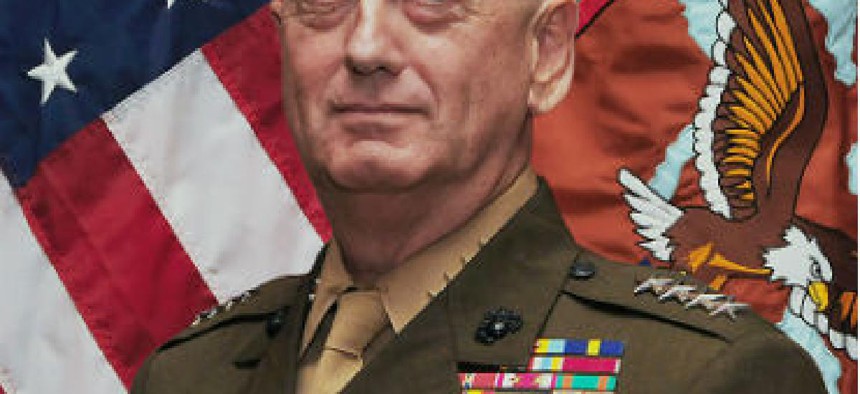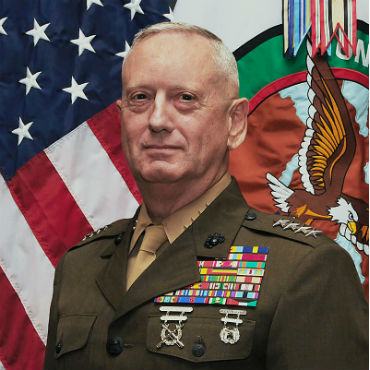Cyber plays small role in cordial Mattis hearing

The Senate panel reviewing the nomination of James Mattis, a retired Marine general, to head the Defense Department focused on strategic threats and agency priorities, including Russia, nuclear modernization, the Pentagon budget and to a small extent, cyber.

James Mattis
During a non-confrontational confirmation hearing that ran three hours, senators largely praised secretary of defense nominee James Mattis as they questioned him about Russia, Iran, readiness, nuclear modernization, budgeting and other topics. But cyber and innovation received only passing attention.
Despite the recent focus on cyber and innovation by the outgoing administration, and the growing cyber threat from Russia in particular, few members of the Senate Armed Services Committee pushed Mattis, a retired Marine Corps general who led Central Command, on his perspectives on cyber.
Sen. Deb Fischer (R-Neb.) stated that America must impose tougher costs on those who commit cyberattacks. "We don't want to find out what constitutes an act of war in cyberspace the hard way," she said.
"I believe a lot of crises and wars have started from miscalculation," Mattis replied. "So while it's important we make clear what we stand for, I think in an area such as...cyber it's also important that our adversaries know what we absolutely will not tolerate. And by making that clear, you're less apt to have somebody stumble into a situation where now we're forced to take action."
In the waning minutes of the hearing, Sen. Ben Sasse (R-Neb.) picked up that line of questioning by asking Mattis when he thought the U.S. might have a clear military doctrine covering offensive and defensive cyber.
"Because of the cyber domain, senator, it is not something the military can do in isolation," Mattis replied. "This is going to require us to work with homeland security and number of other government elements in order to make certain what we do in the military realm is connected to what they're doing in their realm because cyber cuts across everything we do today. And so you can't do something in isolation, and that slows down the process."
Mattis said he would have to investigate the reasons why the U.S. currently lacks a clear cyber doctrine. Sasse then asked Mattis if the U.S. should be actively deterring cyberattacks like Russia's election-related hacking and China's role in the Office of Personnel and Management breach.
Mattis said that he has explored other doctrines such as mutually assured destruction, which he said does not serve as a useful model for cyber. "We're going to have to come up with the guiding principles for how we're going to deal with this sort of thing, and right now I can't give you a good answer," he said.
Sen. Angus King (I-Maine) raised the topic of splitting the National Security Agency and U.S. Cyber Command. Mattis said he supported the elevation of Cyber Command to combatant command status in principle, but he warned the split will be complicated by the need to ensure there is no excessive duplication created by the separate agencies and that the right capacities are instilled in each entity.
A number of senators pressed Mattis for his perspective on Russia and how he differs from President-elect Donald Trump and his national security advisor designate, retired Lt. Gen Michael Flynn, who have expressed more conciliatory views towards Russia than many in the foreign policy establishment.
While avoiding any direct comment on the views of Trump and Flynn, Mattis said Russia has chosen to be a strategic competitor to the U.S., that Russian President Vladimir Putin is actively trying to undermine NATO and other U.S. interests and that the U.S. needs a more aggressive policy to deter Russia. Mattis also voiced support for the findings of the intelligence community that said Russia waged a campaign to undermine the U.S. election.
Mattis also voiced support for innovation programs and acquisition reform, though those topics received far less attention than priorities such as ending sequestration, modernizing the nuclear arsenal and improving readiness.
However, Mattis provided more detail on acquisition and innovation in his written policy questions and answers submitted in advance of the hearing.
In that 56-page document, Mattis stated he would support warfighters by "establishing a culture of innovation across the Department, and encouraging the adoption of proven capabilities, rather than seeking to reinvent what already exists on the commercial market."
Mattis wrote that the "acquisition system and culture must adapt to the reality that hardware and software systems must be integrated and change on a more frequent basis in order to meet warfighter needs, adapting to the speed of relevance.
"Poor acquisition outcomes are forfeiting U.S. technology advantages and depriving the nation of strategic capabilities," he wrote.
After the confirmation hearing, the full Senate voted 81 to 17 to waive the provision requiring secretaries of defense to have been retired from military service for at least seven years. Mattis retired from the Marines in 2013.


